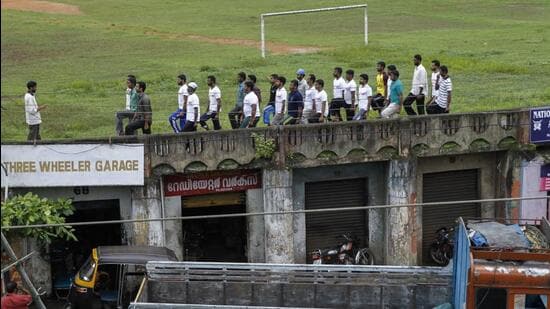All you need to know about 2 of banned PFI affiliates
PFI and its affiliates were banned after a week-long crackdown on their top leaders and office bearers across the country

The Centre has banned the Popular Front of India (PFI) and its affiliates after a week-long crackdown on their top leaders and office bearers across the country. Here is all you need to know about two of the affiliates:
Rehab India Foundation (RIF): Registered in Delhi, it claims to be a non-profit charity involved in the empowerment and development of the poor and the needy regardless of religion, gender, caste, creed, colour, or political affiliations. It says it has developed programmes focussing on education, health sanitation, and economic development to transform villages. RIF claims to have helped 70,182 people across 60 villages in 16 states such as Bihar, West Bengal, Assam, Tamil Nadu, Andhra Pradesh, and Uttar Pradesh.
The government has accused RIF and other PFI affiliates of involvement in violent terrorist activities with an intent to create a reign of terror in the country and endangering security and public order.
The Enforcement Directorate (ED) in a note to the Union home ministry in 2020 said it found ₹1.04 crore was deposited in five bank accounts of RIF from December 2019 to January 2020. The deposits were made in cash and using Immediate Payment Service in amounts varying from ₹5,000 to ₹49,000. The amounts were kept below ₹50,000 to conceal the identities of depositors. This money was deposited or withdrawn around the time demonstrations were taking place against the Citizenship (Amendment) Act (CAA).
RECOMMEND STORIES
- Royal Challengers Bengaluru Clinch Maiden IPL Title with Thrilling 6-Run Win Over Punjab Kings
- Remembering Ratan Tata: A Visionary Leader and Compassionate Humanitarian
- National College Colors Day – September 2, 2024: history
- Bison-ten Yell Day – September 2, 2024: history, FAQs
- National Lazy Mom’s Day – September 6, 2024
The ED examined 73 accounts in 17 banks, including nine of RIF, and said it revealed ₹120.5 crore was credited to them and withdrawn on the same day or within two to three days leaving a very nominal balance. This year, the ED attached ₹68 lakh in the accounts of PFI and RIF.
Campus Front of India (CFI): Formed in Delhi in 2009, it took part in anti-CAA and hijab protests. It has a presence in Kerala, Tamil Nadu, and Karnataka, and fights students’ union elections. CFI has some presence in central universities in Assam, Rajasthan, Delhi, and Uttar Pradesh. Its website says CFI is a neo-social students’ movement, which aims to empower the campuses by developing a new generation of activists.
“Campus Front of India will be in the forefront in leading students to take up social issues, strive for the oppressed sections of the society and empower the campuses to mark a new dawn in the history of student activism,” it says.
“In an age when belligerent Hindutva fascism is rapidly increasing its sway in various spheres, bulldozing our democratic and secular foundations, the Front prioritised challenging it on different terrains.”
In a charge sheet filed against five CFI members in February last year, ED accused the student wing of conspiring to incite violence and disturb communal harmony in Hathras after a Dalit woman allegedly gang raped by four upper caste men died in September 2020.
Atikur Rahman (national treasurer), Masud Ahmed (Delhi general secretary), Sidhique Kappan (a Kerala journalist associated with PFI), and KA Rauf Sherif (national general Secretary) were among those named in the charge sheet.
ED added that illegal activities of PFI/CFI included funding anti-CAA protests, inciting violence, and fomenting trouble, which led to the Delhi riots in February 2020. It accused CFI of seeking to disturb communal harmony, incite communal riots and spread terror in Hathras.







